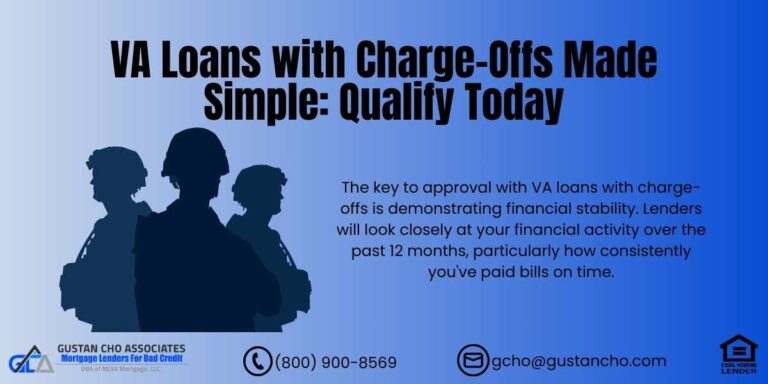How Underwriters View Mortgage with Collections
Getting a Mortgage with Collections: Your 2025 Guide
Can you still qualify for a mortgage with collections on your credit report? The answer is yes, but it takes some planning. Many people worry that having collections on their credit report will stop them from getting a mortgage. This guide is here to help you understand how lenders look at collections. You’ll learn what you need to do and which loan choices are best for you.
Understanding Mortgage with Collections
When applying for a mortgage with collections, it’s important to understand how underwriters view your credit history. Underwriters play a significant role in deciding if your mortgage application gets approved. They carefully analyze your financial history, including any collections, to measure your risk as a borrower.
Collections are past-due debts sent to third-party agencies for recovery. Common collection accounts include medical bills, credit card debt, personal loans, and unpaid utility bills. Each type is treated differently, and understanding the difference is crucial to improving your mortgage application.
Collections won’t automatically disqualify you
find out how flexible underwriting helps you qualify
Types of Collections and Their Impact
Lenders view different collections differently:
- Medical collections typically get the most leniency. Lenders often see medical debt as circumstantial, not necessarily reflecting poor financial management.
- Credit card and personal loan collections raise bigger concerns for lenders, as these debts suggest difficulty managing finances.
- Utility and phone bill collections also signal financial instability, although less severely than credit card debts.
Knowing this, you can address your collections strategically to boost your chances of mortgage approval.
Mortgage with Collections: How Underwriters Evaluate Your Application
When underwriters review your credit report, they’re looking at several key factors:
- Total Amount of Collections: Large or numerous collection accounts might signal higher risk. Lower amounts or older collections typically have a reduced impact.
- Age of Collections: Older collections typically have a lesser impact. Recent collections (within 12 months) are viewed negatively and may significantly lower your credit score.
- Payment Efforts: Lenders look favorably upon efforts to settle or resolve collection debts. Demonstrating recent payments or negotiated settlements can significantly improve your chances of approval.
By proactively resolving your debts or demonstrating consistent financial responsibility, you increase your chances of getting approved for a mortgage with collections.
How Collections Affect Your Credit Score and Loan Approval

Collections significantly impact your credit score, often causing drops of 50 to 100 points or more. Since your credit score directly affects mortgage approval and interest rates, managing collections carefully is crucial. The lower your credit score, the higher the interest rate lenders might offer you, making your mortgage more expensive.
Additionally, collections affect your Debt-to-Income ratio (DTI), which indicates the percentage of your monthly earnings directed towards debt. Lenders generally favor keeping your DTI under 43%. Collections can increase your debt responsibilities, which may elevate your DTI ratio, decreasing your maximum mortgage qualifications or possibly resulting in a denial.
Improving Your Odds for Mortgage Approval with Collections
Getting approved for a mortgage with collections isn’t impossible. Here’s how you can increase your chances:
1. Pay Off Collections Before Applying
One of the best ways to improve your chances for approval is to pay off your collection debts before applying. Paying collections off demonstrates responsibility and reduces your risk profile. However, keep in mind that simply paying a collection doesn’t always boost your credit score immediately. It may take months to reflect positively on your score.
2. Negotiate Settlements or Payment Plans
If paying the collections in full isn’t possible, consider negotiating a settlement or establishing a payment plan. Even partial payments can help convince lenders you’re serious about resolving your debts.
3. Provide Written Explanations
Sometimes, life events cause collections—like sudden job loss or medical emergencies. Providing documentation or written explanations about these events can help underwriters better understand your situation and might positively influence their decision.
4. Establish a Positive Credit History
Once you’ve addressed your collections, focus on building a strong credit profile. Make timely payments, lower credit card balances, and maintain a good credit mix to steadily raise your credit score. Doing this for at least six months before applying can significantly boost your chances of approval.
5. Seek Professional Guidance
Mortgage professionals and credit counselors can provide valuable guidance tailored to your unique circumstances. They can suggest specific steps to improve your credit and identify loan programs best suited for your situation.
No Need to Pay All Collections First
Apply Now And Learn which collections must be paid off and which don’t affect mortgage approval
Home Loan Programs That Accept Mortgage with Collections
Different mortgage programs handle collections differently. Here’s an updated look at how each views mortgage with collections:
- FHA Loans: FHA loans are often ideal for borrowers with collections. FHA guidelines allow applicants to have collections without being automatically disqualified. Typically, FHA loans don’t require you to pay off small medical collections, but non-medical collections exceeding $2,000 usually require repayment plans or proof of resolution.
- VA Loans: Like FHA, VA loans don’t automatically deny you for having collections. VA lenders carefully review your entire financial situation. Showing efforts to address collections helps significantly.
- Conventional Loans (Fannie Mae/Freddie Mac): Conventional lenders usually have stricter rules. They may require collections to be paid off or settled, mainly if the collection amounts are substantial. However, recent updates in 2025 allow certain small collections to be overlooked if your credit score remains strong overall.
Avoid These Mistakes When Applying for a Mortgage with Collections
- Ignoring Collections: Ignoring collections won’t make them disappear. Be proactive—pay or negotiate before applying.
- Applying Too Soon: Allow some time for your credit to improve after paying or settling collections. Apply after you’ve demonstrated improved financial habits.
- Hiding Collections: Always disclose all debts transparently. Lenders will uncover them during underwriting, and hiding debts can lead to denial.
Next Steps: Qualifying for a Mortgage with Collections
Follow these steps to get started today:
- Get your credit report and identify all collections.
- Consult with a loan officer who understands mortgage guidelines related to collections.
- Settle, negotiate, or set payment arrangements for your collections.
- Document all payment efforts clearly.
- Prepare explanations for collections caused by unavoidable circumstances.
- Apply for mortgage programs tailored for borrowers with credit challenges (FHA or VA loans).
Final Thoughts
Having collections doesn’t mean you’re locked out of homeownership. By understanding lender guidelines and proactively addressing your financial history, you can secure a mortgage, even with collections. Stay transparent, communicate clearly with lenders, and take strategic steps to resolve your collections. With patience and the right approach, homeownership remains achievable.
Contact Mortgage Lenders for Bad Credit today if you’re ready to learn more about qualifying for a mortgage with collections. Call or text 800-900-8569 or email gcho@gustancho.com. They can walk you through the process, ensuring you’re prepared every step of the way.
Frequently Asked Questions About Mortgage with Collections:
Q: Can I still get a mortgage with collections on my credit?
A: You can still be eligible for a mortgage even if you have collections. Lenders will consider your entire financial situation and the nature of your collections.
Q: Do I need to pay off collections before applying for a mortgage?
A: You don’t necessarily need to pay off your collections in full, but dealing with them—whether by paying them off or setting up payment plans—can improve your chances of being approved for a mortgage despite having collections.
Q: Will paying collections raise my credit score quickly for a mortgage?
A: Paying off collections helps, but your credit score might not rise immediately. It can take a few months to see improvements when applying for a mortgage with collections.
Q: Do medical collections affect my mortgage application less?
A: Yes, medical collections usually affect your application less because lenders understand these bills often happen due to unexpected events.
Q: How long should I wait to apply for a mortgage after paying collections?
A: It’s best to wait at least six months after resolving your collections. This gives your credit time to improve, helping you qualify more quickly for a mortgage with collections.
Q: Do collections always mean higher mortgage interest rates?
A: It’s best to wait at least six months after resolving your collections. This gives your credit time to improve, helping you qualify more quickly for a mortgage with collections.
Q: Do collections always mean higher mortgage interest rates?
A: Having collections can lead to higher interest rates because your credit score might be lower. Resolving collections before applying can help you qualify for better rates.
Q: Can I explain why I have collections when applying for a mortgage?
A: Yes, providing a written explanation about why collections happened—like losing a job or medical issues—can help lenders better understand your situation and approve your mortgage.
Q: Which mortgage loans are easiest to get approved for with collections?
A: FHA and VA loans are generally the easiest to qualify for if you have collections. These loan programs are more understanding and flexible about your credit history.
Q: What happens if I hide collections when applying for a mortgage?
A: Never hide collections from lenders. Underwriters will find them during the mortgage process, and not disclosing them could result in your application being denied.
Q: Who can help me qualify for a mortgage with collections?
A: Mortgage experts and credit counselors, like Mortgage Lenders for Bad Credit, can help you qualify for a mortgage with collections, even if your credit isn’t perfect.
This blog about “How Underwriters View Collections on Mortgage Loans” was updated on March 13th, 2025.
Fast, Transparent Approval Process & Expert Credit Help & Guidance
Get personalized advice to maximize your chances of approval.







